实现百度第三方登陆详细解答
Posted lyxcode
tags:
篇首语:本文由小常识网(cha138.com)小编为大家整理,主要介绍了实现百度第三方登陆详细解答相关的知识,希望对你有一定的参考价值。
第一步:前提条件是需要在阿里云买个域名,并且买一个服务器。然后将域名解析,和服务器的ip地址绑定。然后需要将服务器备案,别人才能访问你的网页。
接下来就是重点看怎么实现第三方登陆了。。。。。
第二步:登陆百度云https://developer.baidu.com/如果有账号就直接登陆,可以手机验证码登陆,忘记密码也不怕。
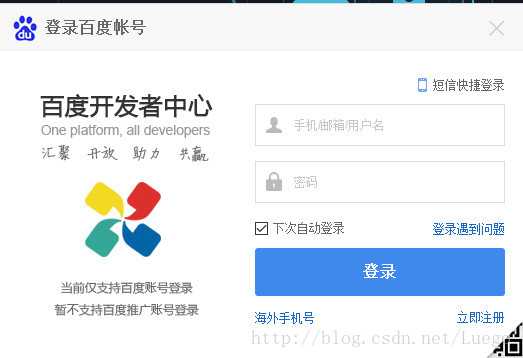
如果没有账号,就注册一个就行了。
第二步:把鼠标滑动到账户名上,会看到应用管理,点击应用管理。
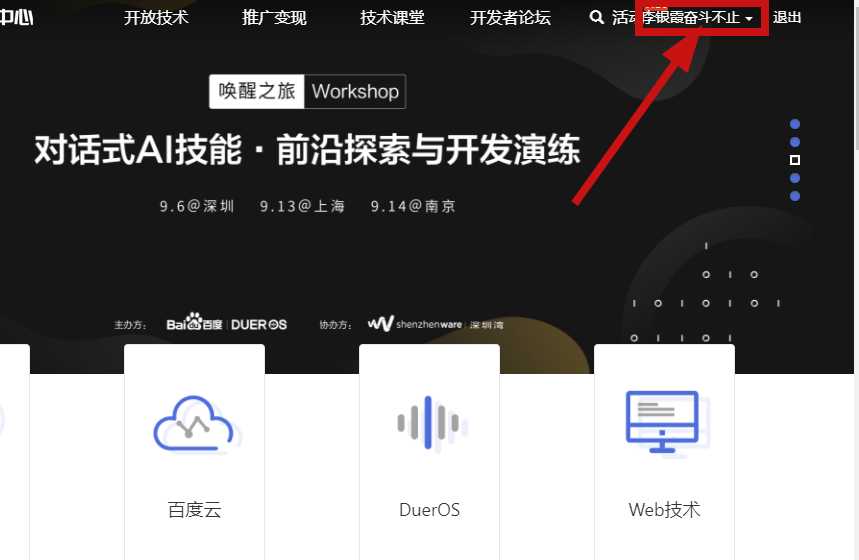
点击应用管理后的页面如下:
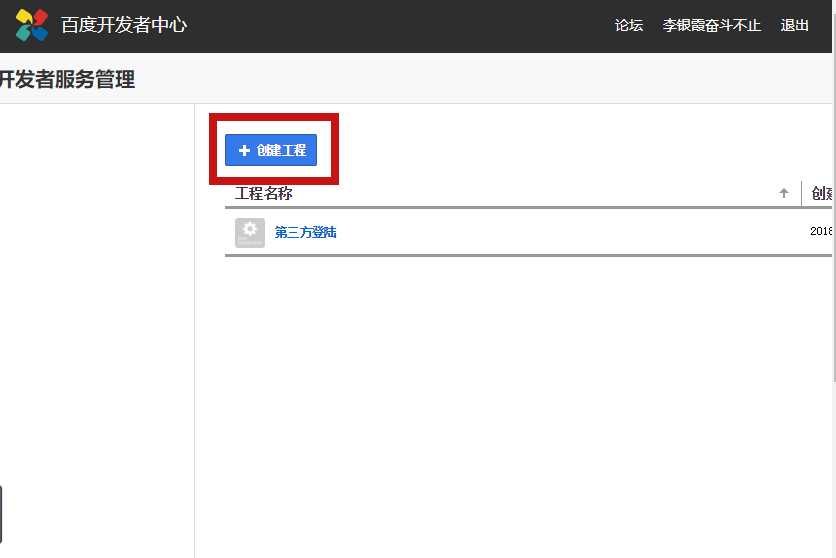
然后,点击创建工程,下面那个是我之前创建过得工程,
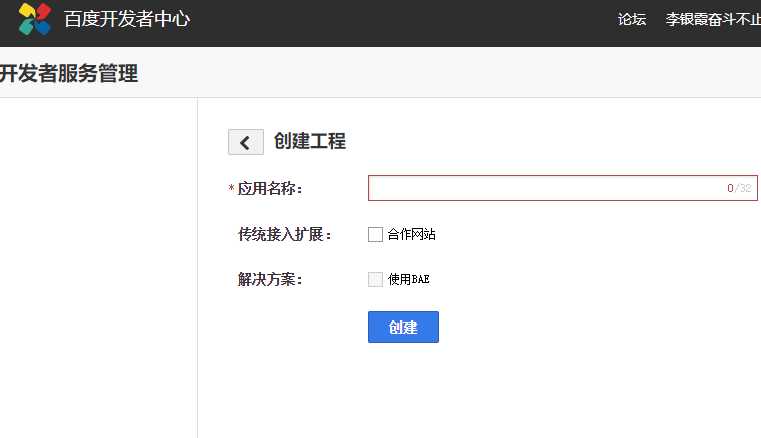
在应用名称里起一个名字,我就叫“第三方登陆研究”,下面的两个框框不用管,点击创建后如图:
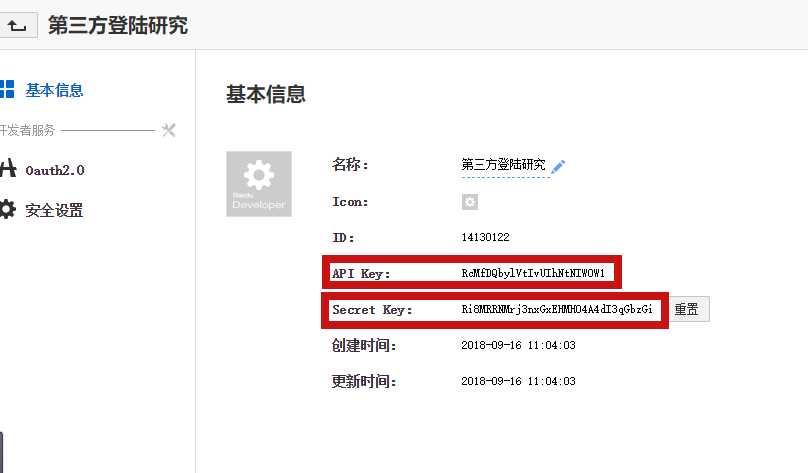
红色框框圈起来的就是我们后面需要的id和secret值,在JSP和Servlet里需要使用
然后单击“安全设置”,会出现下面的页面,
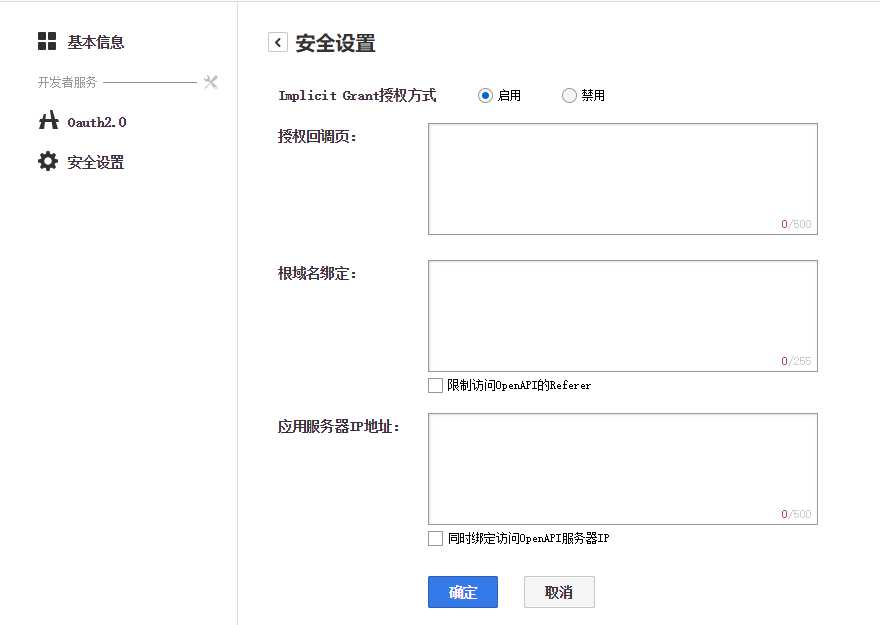
授权回调页就是你第三方访问成功后,进入的页面,例如我的:http://www.lyxwz.top/venu/BaiDuServlet
根域名绑定:就是你购买的域名
应用服务器ip地址:就是你购买的服务器的ip地址
确认无误后,点击确定;
这个时候,需要写一个项目venu,这个项目的登陆界面需要来一个第三方登陆,
在venu里的login.jsp 中的代码中的client_id和redirect_uri改成自己的,client_id 就是我们的API key ,redirect_uri就是我们之前填的授权回调页。
<%@ page language="java" contentType="text/html; charset=UTF-8" pageEncoding="UTF-8"%> <!DOCTYPE html PUBLIC "-//W3C//DTD HTML 4.01 Transitional//EN" "http://www.w3.org/TR/html4/loose.dtd"> <html> <head> <meta http-equiv="Content-Type" content="text/html; charset=UTF-8"> <title>Insert title here</title> </head> <script type="text/javascript"> function bdlogin(){ location.href="https://openapi.baidu.com/oauth/2.0/authorize?response_type=code&client_id=RcMfDQbylVtIvUIhNtNIW0W1&redirect_uri=http://www.lyxwz.top/venu/BaiDuServlet&display=popup"; } </script> <body> <input type="button" value="百度登录" onclick="bdlogin()"> </body> </html>
首先是我们的自己电脑的浏览器向购买服务器发送请求,然后购买的服务器给我们送来了一个登陆界面的信息,
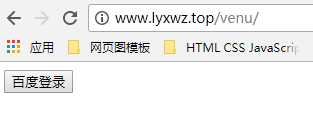
然后我们点击百度登陆,进入 百度服务器的登陆界面
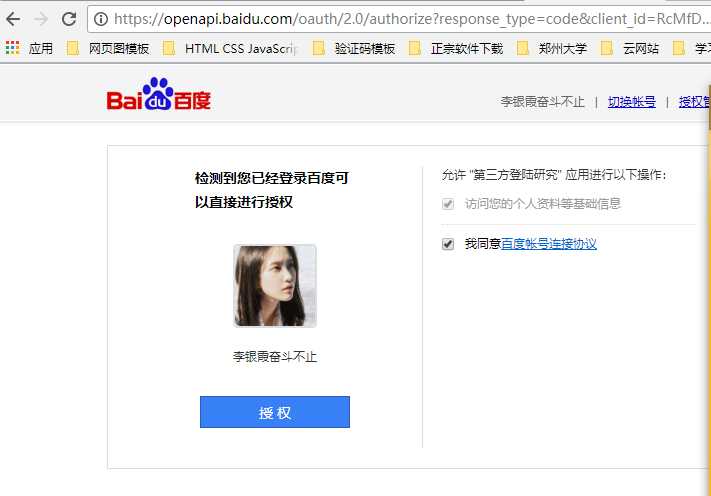
当我们点击授权,百度服务器就会核实我们的信息和百度里面的信息是否相符,如果相符,就会进入我们之前填写的授权回调页
我的授权会掉页里面的代码如下:重点:其中下面代码红色部分需要根据我们的百度密钥进行改正,
import java.io.IOException; import java.util.Map; import javax.servlet.ServletException; import javax.servlet.http.HttpServlet; import javax.servlet.http.HttpServletRequest; import javax.servlet.http.HttpServletResponse; import org.apache.http.HttpEntity; import org.apache.http.HttpResponse; import org.apache.http.client.methods.HttpGet; import org.apache.http.impl.client.CloseableHttpClient; import org.apache.http.impl.client.HttpClients; import org.apache.http.util.EntityUtils; import com.alibaba.fastjson.JSON; import com.alibaba.fastjson.TypeReference; public class BaiDuServlet extends HttpServlet { private static final long serialVersionUID = 1L; protected void doGet(HttpServletRequest request, HttpServletResponse response) throws ServletException, IOException { doPost(request, response); } protected void doPost(HttpServletRequest request, HttpServletResponse response) throws ServletException, IOException { String code = request.getParameter("code"); String redirect_uri = "http://www.lyxwz.top/venu/BaiDuServlet"; String client_secret = "Ri8MRRNMrj3nxGxEHMH04A4dI3qGbzGi"; String client_id = "RcMfDQbylVtIvUIhNtNIW0W1"; String url1 = "https://openapi.baidu.com/oauth/2.0/token?grant_type=authorization_code&code=" + code + "&client_id=" + client_id + "&client_secret=" + client_secret + "&redirect_uri=" + redirect_uri + ""; String content1 = ""; try { // 鍒涘缓涓?涓狧ttpClient瀵硅薄 CloseableHttpClient httpClient = HttpClients.createDefault(); // 鍒涘缓涓?涓狦et璇锋眰 HttpGet getReq = new HttpGet(url1); getReq.addHeader("Accept", "text/html,application/xhtml+xml,application/xml;q=0.9,image/webp,*/*;q=0.8 "); getReq.addHeader("Accept-Encoding", "gzip, deflate, sdch, br"); getReq.addHeader("Accept-Language", "zh-CN,zh;q=0.8"); getReq.addHeader("Cache-Control", "max-age=0"); getReq.addHeader("Connection", "keep-alive"); getReq.addHeader("Host", "openapi.baidu.com"); getReq.addHeader("User-Agent", "Mozilla/5.0 (Windows NT 6.3; WOW64) AppleWebKit/537.36 (KHTML, like Gecko) Chrome/52.0.2743.116 Safari/537.36"); HttpResponse res = httpClient.execute(getReq); HttpEntity entity = res.getEntity(); content1 = EntityUtils.toString(entity, "UTF-8"); } catch (Exception e) { e.printStackTrace(); } Map<String, Object> map = JSON.parseObject(content1, new TypeReference<Map<String, Object>>() { }); String access_token = (String) map.get("access_token"); print(access_token, request, response); } public void print(String access_token,HttpServletRequest request, HttpServletResponse response) throws ServletException, IOException { String content = ""; String url = "https://openapi.baidu.com/rest/2.0/passport/users/getInfo?access_token=" + access_token + ""; try { // 鍒涘缓涓?涓狧ttpClient瀵硅薄 CloseableHttpClient httpClient = HttpClients.createDefault(); // 鍒涘缓涓?涓狦et璇锋眰 HttpGet getReq = new HttpGet(url); getReq.addHeader("Accept", "text/html,application/xhtml+xml,application/xml;q=0.9,image/webp,*/*;q=0.8 "); getReq.addHeader("Accept-Encoding", "gzip, deflate, sdch, br"); getReq.addHeader("Accept-Language", "zh-CN,zh;q=0.8"); getReq.addHeader("Cache-Control", "max-age=0"); getReq.addHeader("Connection", "keep-alive"); getReq.addHeader("Host", "openapi.baidu.com"); getReq.addHeader("User-Agent", "Mozilla/5.0 (Windows NT 6.3; WOW64) AppleWebKit/537.36 (KHTML, like Gecko) Chrome/52.0.2743.116 Safari/537.36"); HttpEntity entity = httpClient.execute(getReq).getEntity(); content = EntityUtils.toString(entity, "UTF-8"); System.out.println(content); } catch (Exception e) { e.printStackTrace(); } Map<String, Object> map = JSON.parseObject(content, new TypeReference<Map<String, Object>>() {}); System.out.println(map); String baiduid = (String) map.get("userid"); System.out.println(baiduid); //List list = JdbcUtils.getList(User.class, "select * from user where baiduid=" + baiduid); // if (list.size() == 0) { request.setAttribute("message", map); request.getRequestDispatcher("/result.jsp").forward(request, response); // } else { // User user = (User) list.get(0); // req.getSession().setAttribute("UserInfo", user); // req.getRequestDispatcher("/success.jsp").forward(req, res); // } } }
然后将这个项目压缩成war包,复制到购买的服务器上的tommcat里面的webapps中,点击lib里面的startup.bat就发布了 war包也自动解压了
我们就可以在任何一台电脑上像登陆百度一样登陆我们的项目了。
至此,百度第三方登陆完成!!!
以上是关于实现百度第三方登陆详细解答的主要内容,如果未能解决你的问题,请参考以下文章